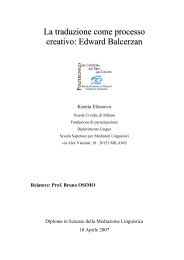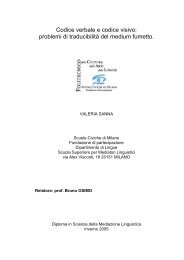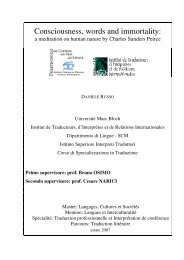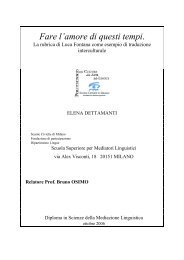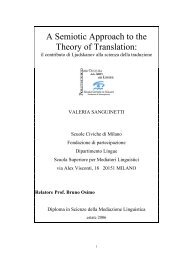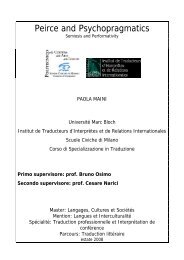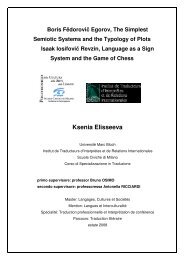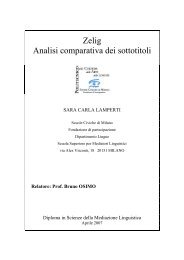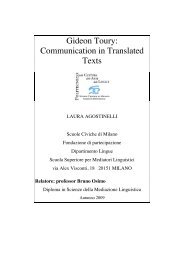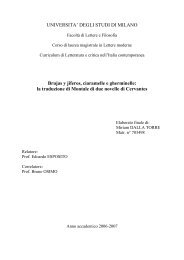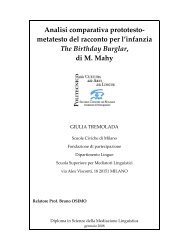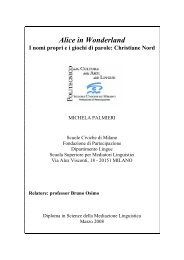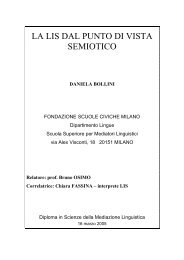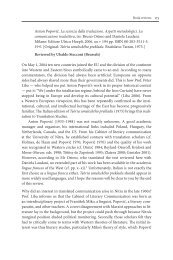Relatore: Professor Bruno OSIMO - Bruno Osimo, traduzioni ...
Relatore: Professor Bruno OSIMO - Bruno Osimo, traduzioni ...
Relatore: Professor Bruno OSIMO - Bruno Osimo, traduzioni ...
You also want an ePaper? Increase the reach of your titles
YUMPU automatically turns print PDFs into web optimized ePapers that Google loves.
during the performance. The problem-solving session can also be recorded on<br />
video; this way, the experimenter can then review the video-tape together with<br />
the subject, who can give his interpretation of what happened” (Someren,<br />
Barnard and Sandberg 1994).<br />
“The informant is therefore no longer the analyst, which makes the<br />
analysis more objective and the findings open to falsification” (Jääskeläinen<br />
1999: 66).<br />
However, there seem to be some problems. In fact, a person could find it<br />
difficult to remember exactly what he did, especially if some time has passed<br />
after the task has been carried out. Sometimes even, one is not aware of what<br />
he is doing. Furthermore, subjects may tend to report their thought process as<br />
more coherent and intelligent than it originally was, giving the false<br />
impression of perfectly rational behavior (Someren, Barnard and Sandberg<br />
1994).<br />
This kind of post hoc rationalizing can be intentional or unintentional.<br />
In fact, humans tend to reconstruct events as more structured than they<br />
originally were, because their memory is guided by their knowledge of the<br />
result.<br />
Some researchers have shown that the data obtained by retrospection are<br />
not always valid (Nisbett and Wilson, 1979; Ericsson and Simon, 1993). They<br />
examined closely the conditions under which reports are considered unreliable<br />
and they discovered that<br />
all discrepancies were found in situations in which there was either a<br />
delay in time between the cognitive process and the report, or there was a<br />
question by the experimenter that required an interpretation rather than<br />
a direct report, (‘Why did you do X instead of Y?’), or both. (Someren,<br />
Barnard and Sandberg 1994: 22)<br />
When subjects are asked for memories, explanations or motivations, they<br />
don’t answer from direct memory of the cognitive process but from an<br />
interpretation of it that can be influenced by expectations.<br />
9



